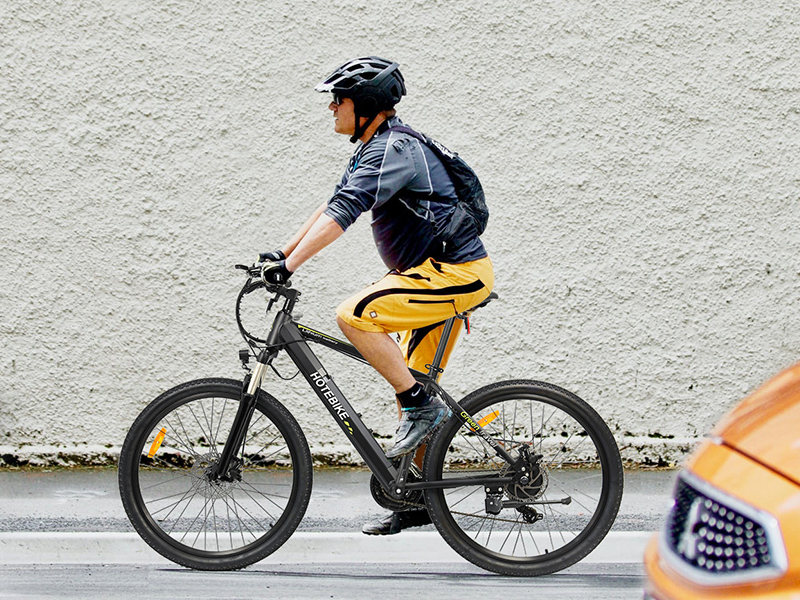Electric bikes are rapidly gaining in popularity, and as a result, there are many different brands and models on the market. Each of these bikes has its own unique features and technological advancements that set them apart from others on the market. In this blog post, we’ll compare electric bike technology across different brands and models.

One of the most important components of an electric bike is the battery. The battery determines the range and performance of the bike. Some brands, such as Bosch and Shimano, have developed their own battery systems that offer high performance and durability. Other brands, such as Yamaha, have opted to use standard battery technology that is well-established in the industry.
Another key component of electric bikes is the motor. Mid-drive motors, which are located near the pedals and offer better hill-climbing ability, are becoming increasingly popular. Some brands, such as Bosch and Brose, are known for having high-performance mid-drive motors. Other brands, such as Bafang, have developed their own proprietary motors that deliver excellent performance and efficiency.
Many electric bikes feature built-in displays that show speed, range, and other information. Some displays also allow riders to set preferences for pedal assist levels and other settings. Brands such as Bosch and Yamaha are known for their intuitive and user-friendly display systems that offer a range of customization options. Other brands, such as Bafang, have opted for a more minimalist display that shows just the essentials.
The frame material used for an electric bike can have a big impact on weight, durability, and stiffness. Some brands, such as Trek and Specialized, use high-end carbon fiber or aluminum frames to reduce weight and increase performance. Other brands, such as Rad Power Bikes, use steel frames that are durable and provide a more comfortable ride.
Many electric bike brands offer a range of accessories and upgrades that can enhance the performance and functionality of the bike. Some brands, such as Haibike, offer specialized accessories such as fenders, racks, and lights that are designed specifically for their bikes. Others, such as Juiced Bikes, offer upgrade options such as larger batteries or more powerful motors.
Suspension can play a big role in the comfort and handling of an electric bike. Some brands, such as Haibike and Giant, offer high-end suspension systems that provide a smooth ride on rough terrain. Other brands, such as Aventon and Juiced Bikes, opt for rigid frames with larger tires that provide a more comfortable and stable ride.
Power output is an important consideration when comparing electric bike technology. Higher power output generally means better performance and acceleration. Some brands, such as Specialized and Trek, offer bikes with maximum power output of up to 750 watts, while others, such as Rad Power Bikes, offer bikes with maximum power output of 750 watts.
Brakes are a crucial safety component on any bike. Some electric bike brands, such as Specialized and Trek, use high-end hydraulic disc brakes that offer excellent stopping power and modulation. Others, such as Rad Power Bikes, opt for more cost-effective mechanical disc brakes.
Price is a major factor when comparing electric bike technology across brands and models. Some brands, such as Haibike and Specialized, offer high-end bikes with prices upwards of $5,000. Other brands, such as Rad Power Bikes and Aventon, offer more affordable options with prices around $1,000.
Customer support and warranty are important considerations when purchasing an electric bike. Some brands, such as Bosch and Shimano, offer extensive warranties and excellent customer support. Other brands, such as Aventon and Juiced Bikes, offer more limited warranties and customer support.
Some electric bike brands are offering integration with smartphones through dedicated apps. Apps allow riders to monitor battery life, customize settings, track rides and more. Brands such as Stromer and Superpedestrian offer Bluetooth integration with their bikes, while Bosch offers a smartphone hub that allows riders to connect their phones to the bike’s display.
Range is an important factor to consider when comparing electric bike technology. Some brands offer bikes with longer ranges than others. For example, the Energica Eva Ribelle offers a range of up to 248 miles while the Specialized Turbo Levo SL has a range of around 65 miles.
Pedal assist systems are key components in electric bike technology. Some brands, such as Bosch and Yamaha, offer highly advanced and efficient pedal assist systems that are known for their smooth, natural-feeling power delivery. Other brands, such as Bafang, offer more affordable and straightforward pedal assist systems.
Folding electric bikes offer a unique combination of convenience and portability. Brands such as Brompton and Tern offer high-quality folding electric bikes that are easy to store and transport. Some folding e-bikes even have the ability to easily switch between manual and electric modes.
Regenerative braking is a technology that converts the kinetic energy of the bike’s forward motion into electrical energy that can charge the battery. Brands such as Stromer and A2B offer regenerative braking systems, which can help increase the bike’s range and reduce brake wear.
In conclusion, there are many differences in electric bike technology across brands and models. Some are known for their high-performance motors or battery systems, while others may focus on durability or user-friendly displays. Ultimately, the right electric bike for you will come down to your individual needs and preferences. By comparing technologies across different brands and models, you can make an informed decision and find the best electric bike for your needs.
 hotebike
hotebike